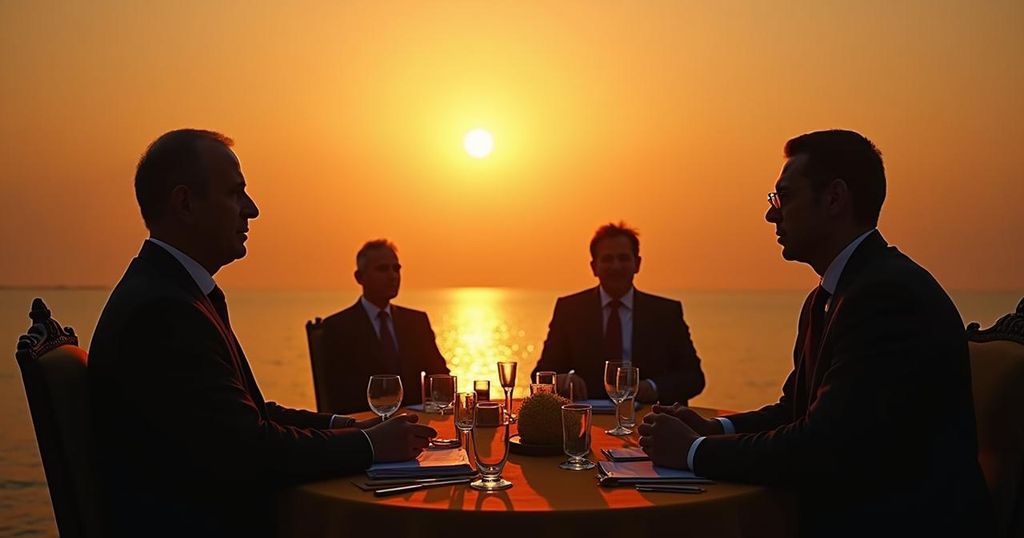Egypt has declared its commitment to protect the Nile waters and Somalia’s sovereignty amid rising tensions with Ethiopia over the Grand Renaissance Dam. Foreign Minister Badr Abdelatty condemned Ethiopia for unilateral actions and violations of international law, asserting that Egypt will not yield to existential threats. He also called for international reform in response to the situation in Gaza, advocating for fair negotiations and support for Somalia.
In Cairo, Egypt has reaffirmed its commitment to safeguarding the waters of the Nile amidst rising tensions with Ethiopia concerning the Grand Renaissance Dam (GERD). This declaration also extends to defending Somalia’s sovereignty, as highlighted by Badr Abdelatty, Egypt’s Minister of Foreign Affairs. Minister Abdelatty emphasized that Egypt’s approach aims to benefit all nations that rely on the Nile, ensuring that the interests of downstream countries are not jeopardized by unilateral actions taken by upstream nations. He articulated concerns over Ethiopia’s disregard for international law, claiming it has engaged in unilateral decision-making regarding this significant water resource without adequate consultation with involved parties. Minister Abdelatty stated, “Anyone who thinks Egypt will compromise on any existential threat is mistaken,” reaffirming Egypt’s principle of not conceding to perceived threats to its national security. Additionally, Egypt has expressed discontent over Ethiopia’s efforts causing disruptions that could undermine Somalia’s territorial integrity, effectively voicing their support for Somalia amid ongoing challenges. In addressing the broader geopolitical context, Abdelatty condemned the international community’s muted response to Israeli actions in Gaza, asserting that such circumstances reveal inconsistencies within global leadership and the necessity for reforms in international governance structures.
The Nile River is crucial for the livelihoods and economies of several nations in Northeast Africa, primarily Egypt and Sudan, who are dependent on its waters for agriculture and daily living. The construction of the Grand Ethiopian Renaissance Dam (GERD) has been a source of contentious disagreement, as Ethiopia’s plans have provoked fears in downstream countries about water availability. Egypt has consistently advocated for negotiations among the involved parties to ensure fair water distribution and has taken a firm stance against unilateral actions that could exacerbate tensions. Furthermore, Egypt has expanded its diplomatic efforts into the Horn of Africa, particularly regarding the situation with Somalia, emphasizing regional stability and integrity in light of Ethiopian actions. Additionally, the remarks made by Egypt’s foreign minister reflect broader regional issues, including Egypt’s criticisms of international responses to conflicts in the Middle East, particularly regarding Israel’s military actions. This indicates Egypt’s desire to showcase itself as a leader within the Arab League and a mediator in conflicts that affect regional security.
In conclusion, Egypt has made it abundantly clear that it will not tolerate actions that threaten its water security or the sovereignty of its neighbor, Somalia. The conflict regarding the Grand Ethiopian Renaissance Dam poses a serious challenge to Egypt’s essential water resources, prompting the government to take a firm stand against unilateral decisions by Ethiopia. Furthermore, Egypt’s advocacy for Somalia’s territorial rights illustrates its commitment to regional stability. Amid these challenges, the call for reforms in international governance highlights the need for a more equitable global framework responsive to the crises faced by nations today.
Original Source: www.garoweonline.com






